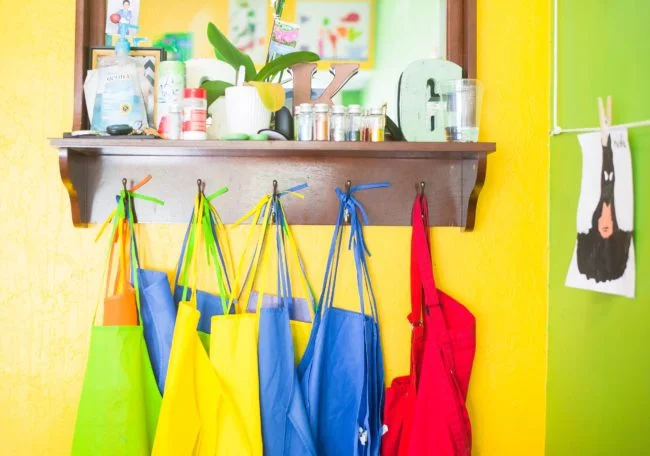
It’s that time again: up and down the country parents are ironing uniforms, sticking name tags on to blazers and packing pencil cases. But how are our kids feeling? For some, the return to school- or start of school- brings a heap of anxiety.
Here’ how to help a child with anxiety about school:
The clingy primary-aged child
If you’ve ever experienced a teacher having to literally drag your crying child away from you at the classroom door, you’ll know how heart breaking it can be.
Reassure them that you’ll be back!
One way to help ease a child into being separated from you is to discuss it beforehand- explain how for a while they’ll be having fun in the classroom with their friends, but then you’ll always be back to pick them up.
Cuddles for comfort
Some schools will allow younger children to take a favourite cuddly toy in with them every day while they get settled. This can be a great way to comfort them. Remind them that their cuddly friend is with them all day to keep them company and ‘look after’ them.
Be understanding
Ensure you don’t tell off a child who is struggling with separation anxiety; the feelings can be frightening and devastating. Remind them that you understand their sadness but you’ll be back to pick them up later.
Smiles after tears
Lastly, it’s more than likely that the teachers and teaching assistants at school will be well experienced in helping distract upset little ones. And, chances are that a few minutes after you’ve gone they’ll be joining in happily with the rest of the class.
The anxious older child
For introverts or worriers, going to secondary school can be daunting. The leap from cosy primary school to a large secondary with new faces and new rules is a big life change. Or, perhaps your child hasn’t had the easiest time at school in recent years and is experiencing back to school anxiety? Here’s how to help them cope.
You are their support system
Firstly, reassure them that you have got their back. No matter what life at school throws at them, that you are there to support them no matter what. Should friendship troubles occur you’ll listen to their feelings, or if bullying crops up you’ll be on top of it in an instant. Knowing you are their supporter and cheerleader is a great source of comfort. ‘They need to know that you’re rooting for them back home,’ says Dad Info CEO Ian Soars. ‘They need to see that you understand those pressures and that you’re the safe space for them to air anything if they need to do that.’
Listen
Encourage them to open up about their fears, and listen. Be careful not to dismiss their concerns, and if possible offer solutions to problems.
Chill out space
Allow them down time. When they come in from school, it can be a good idea to schedule in half an hour of chill out time for them to decompress from the school day before embarking on homework or study.
Celebrate positive steps
Point out any little wins, as well as big successes. For example, they may have been anxious about going in to school this morning, but they did it! Or, they were fearful about doing hockey for the first time but they managed to give it a try, which shows courage.
Go for a drive
Try going for a drive for a chat. Surprisingly it can work even on non-communicative teens. ‘Communication is key,’ says Dad Info CEO Ian Soars. ‘When you go for a drive you are sat alongside each other. It’s non-confrontational. Ask how they’re doing and follow the threads that they give you. Make sure that those communication lines remain open.’
Keep a routine
‘Keep bedtimes regular and early because they need the sleep. Also keep mealtimes regular and eat with your kids if you can,’ advises Ian. Routines offer stability and comfort in a child’s life, which can help when they are going through a stressful time.
Further reading on Dad Info
Supporting My Child’s Education- What Can I Do?
Entering the Snake Pit: How to Help Your Child Transition to Secondary School







